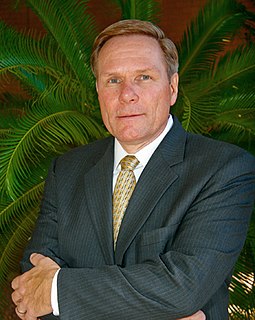A Quote by Nancy Pearcey
Visit a typical science classroom and you will discover far more than empirical facts being taught. The dominant worldview among scientific intellectuals is evolutionary naturalism, which holds that humans are essentially biochemical machines.
Related Quotes
Although humans today remain more capable than machines for many tasks, by 2030 machine capabilities will have increased to the point that humans will have become the weakest component in a wide array of systems and processes. Humans and machines will need to become far more closely coupled, through improved human-machine interfaces and by direct augmentation of human performance
In a very real sense, therefore, advocacy of the doctrine of continuity [i.e evolutionism] has always necessitated on retreat from pure empiricism [i.e., logic an observation], and contrary to what is widely assumed by evolutionary biologists today, it has always been the anti-evolutionists [i.e creationist], not the evolutionists, in the scientific community who have struck rigidly to the facts and adhered to a more strictly empirical approach... It was Darwin the evolutionist who was retreating from the facts.
The truth is that the phenomena of artistic production are still so obscure, so baffling, we are still so far from an accurate scientific and psychological knowledge of their genesis or meaning, that we are forced to accept them as empirical facts; and empirical and non-explanatory names are the names that suit them best.
The purpose of scientific method is to select a single truth from among many hypothetical truths. That, more than anything else, is what science is all about. But historically science has done exactly the opposite. Through multiplication upon multiplication of facts, information, theories and hypotheses, it is science itself that is leading mankind from single absolute truths to multiple indeterminate, relative ones.
"Methodological naturalism" and "metaphysical naturalism" are terms that often surface in the continuing battle between evolutionary biology and creationism/intelligent design. The methodological thesis says that scientific theories shouldn't postulate supernatural entities; the metaphysical thesis says that no such entities exist. In this debate, God is the supernatural entity at issue; the question isn't whether science gets to talk about mathematical entities if Platonism is correct.
If complex organisms demand an explanation, so does a complex designer. And it's no solution to raise the theologian's plea that God (or the Intelligent Designer) is simply immune to the normal demands of scientific explanation. To do so would be to shoot yourself in the foot. You cannot have it both ways. Either ID belongs in the science classroom, in which case it must submit to the discipline required of a scientific hypothesis. Or it does not, in which case, get it out of the science classroom and send it back to church, where it belongs.
A US Department of Education; implementation of a scientific materialist philosophy; studies, being cleansed of religious, patriotic and other features of the bourgeois ideology; students taught on the basis of Marxian dialectical materialism, internationalism and general ethics of a new socialist society; present obsolete methods of teaching will be superseded by a scientific pedagogy. The whole basis and organization of capitalist science will be revolutionized. Science will become materialistic, hence truly scientific. God will be banished from the laboratories as well as from the schools.
It is this claim to a monopoly of meaning, rather than any special scientific doctrine, that makes science and religion look like competitors today. Scientism emerged not as the conclusion of scientific argument but as a chosen element in a worldview - a vision that attracted people by its contrast with what went before - which is, of course, how people very often do make such decisions, even ones that they afterwards call scientific.
There is no "scientific worldview" just as there is no uniform enterprise "science" - except in the minds of metaphysicians, school masters, and scientists blinded by the achievements of their own particular niche... There is no objective principle that could direct us away from the supermarket "religion" or the supermarket "art" toward the more modern, and much more expensive supermarket "science." Besides, the search for such guidance would be in conflict with the idea of individual responsibility which allegedly is an important ingredient of a "rational" or scientific age.
It is ironic that the scientific facts throw Darwin out, but leave William Paley, a figure of fun to the scientific world for more than a century, still in the tournament with a chance of being the ultimate winner... Indeed, such a theory is so obvious that one wonders why it is not widely accepted as being self-evident. The reasons are psychological rather than scientific.
































